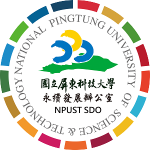On May 16th, 2023, the NPUST Department of Plant Industry and Trend Win Biotechnology Co., Ltd held a presentation to publish the results of their joint research on plant growth agents for growth, yield and rice branching.
Associate Professor Yun-Yang Chao from the Department Plant Industry explained that the experiment was carried out in three stages: the rice tillering stage, the field rehydration stage, and the panicle differentiation stage. When using the plant growth agent developed by Trend Win Biotechnology over many years, the organic materials can effectively increase the earing rate of the rice. At the heading stage, the number of effective tillers was higher compared to the control group, and the heading and flowering time were also earlier. After investigation, it was found that the number of effective tillers in the treatment group was 34% greater. The physical and chemical characteristics and quality of rice are yet to undergo analysis.
National Pingtung of Science and Technology’s president, Chin-Lung Chang, remarked that “carbon reduction is a common goal around the world. And with the rice industry being important to food supplies and economics, the question of how to find balance and sustainability is the key. NPUST has always focused on the development of scientific and technology based agriculture and we hope that more environmentally friendly farming methods will be applied in the fields. In the current cooperation with Trend Win Biotechnology, plant growth agents are used to increase rice production, and you can see the difference in the results of the two groups in the field experiments—and how the agent help increase production and output value.”
Trend Win Biotechnology’s General Manager Hung-Cheng Hsieh said, “this technology can make rice plants strong, induce rice branching and earing, help different tillers to ear out and help reduce immaturity rates to increase yields. Whether it can improve rice quality at the same time is a question that the team from NPUST will continue to study.” Associate Professor Yun-Yang Chao added that “currently, rice farming methods use too much chemical fertilizers and pesticides, which have great impacts on cultivation environments. Pesticides destroy the fields’ ecosystems, and fertilizers can make rice diseases more serious. Using rice-friendly farming methods, we are looking for the critical moments, such as at the transplanting stage. By adjusting the water levels in the paddy field, we can effectively inhibit the growth of weeds. Then we use microbial preparations and essential oils to prevent and control diseases and insects. After years of research and development, Trend Win Biotechnology has successfully developed a product that can effectively increase the earing rate of rice and which is beneficial to the health of the environment while increasing output value.”
The industry-university cooperation taking place between NPUST and Trend Win Biotechnology is an enterprise which lines up with the United Nations’ SDG2 to “ensure food security, eliminate hunger, and promote sustainable agriculture”. In the future, by using more technological planting techniques and applying unmanned vehicles, hopes are that this earing technology will be adopted by the industry. The aim of these friendly farming methods is not only to improve yields and rice quality to increase farmers’ incomes, but also to move towards the goals of “net-zero” sustainability, ecological conservation, and the creation of a heart-warming countryside.
















